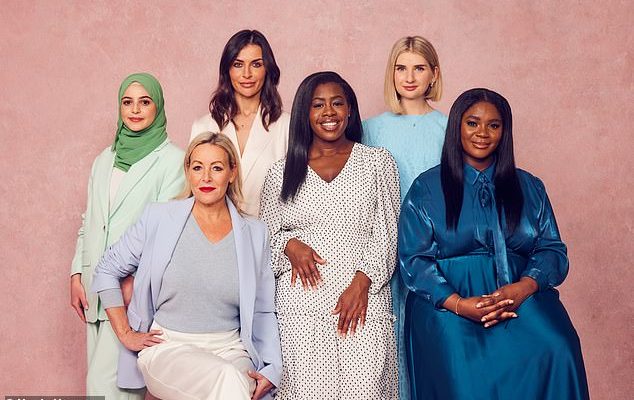When we asked you to nominate the women you truly admire — those making huge differences to their local communities and beyond — we were inundated with hundreds of incredible stories that spoke of bravery, self-sacrifice and astonishing determination.
After much deliberation, our panel of judges chose six worthy winners of this year’s Daily Mail Inspirational Women Awards, held in partnership with Marks & Spencer, in support of The WOW Foundation (Women of the World).
Last month, the winners were invited to Buckingham Palace to celebrate their remarkable achievements by WOW, which works globally to promote gender equality, where they met its President, Her Majesty The Queen.
On Monday evening, at a glittering gala ceremony, they each received a trophy from presenters including the Prime Minister’s wife Akshata Murty, Angela Rippon and the Mail’s Sarah Vine.
Speaking on Monday, Mrs Murty said: ‘All the winners tonight are working to up light so many communities across the UK and I am grateful to have met them today.
The Daily Mail’s six Inspirational Woman winners (L-R): Muzoon Almellehan, Claire Lilly, Carla Cressy, Clotilde Abe, Lucy Vincent, Tinuke Awe
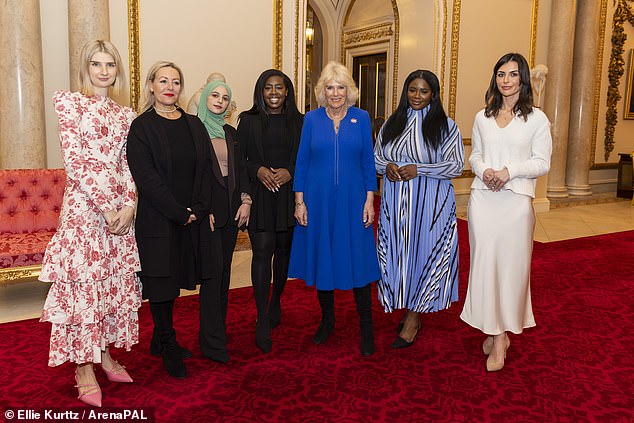
The six winners at Buckingham Palace last month with Queen Camilla, President of WOW
‘It’s wonderful that the Daily Mail and WOW come together to celebrate these amazing women and to showcase their extraordinary stories as we strive towards a truly equal world.’
Jude Kelly CBE, WOW’s CEO and founder, says: ‘It is in the DNA of WOW across the world to meet and support inspirational women, so we are so grateful for the opportunity to be involved with the Inspirational Women Awards. It has been fantastic reading about so many great women, pushing boundaries and making change happen.
‘The recipients of this year’s Awards are examples of the incredible power of individuals to change circumstances for thousands, and sometimes millions, of others.’
Stuart Machin, M&S chief executive, says: ‘M&S is a business powered by inspiring women … and we support progress towards true gender equity.
‘With this in mind, it was a real pleasure to attend and be on the judging panel for the Inspirational Women Awards. Meeting the winners and hearing their personal tales was incredibly moving and reminded me how we can always learn from each other.’
Now, we want you to meet the remarkable women who are making meaningful change in our world today.
CAMPAIGNER FOR WOMEN’S HEALTH
Carla Cressy, The Endometriosis Foundation
When the first calls started coming in to the Endometriosis Foundation’s free menstrual health helpline last week it was a full-circle moment for the charity’s founder, Carla Cressy.
‘I wish I’d had access to something like this as a teenager,’ she says. ‘If I could have spoken to a nurse fully versed in the symptoms of endometriosis, I’d almost certainly have got diagnosed much sooner, which would have been life-changing for me. I might even be a mother now.’
Instead, and despite being under the care of a gynaecologist at 14, it took 11 years for Carla to get a diagnosis. That delay ultimately led to her needing a total hysterectomy at just 29 — leaving her infertile and plunging her into early menopause. Carla also needed major bowel surgery, and a stoma bag for 18 months.

It took Carla Cressy 11 years to get a diagnosis for endometriosis, leaving her infertile and dealing with early menopause
‘Living with a stoma isn’t easy and that has only just been reversed,’ says Carla, now 32. ‘If I’d been put on a treatment pathway sooner, I doubt I’d have needed so many aggressive surgeries.’
Endometriosis is a painful condition that causes tissue similar to that which makes up the lining of the uterus to grow where it shouldn’t. Fibrous scar tissue can then form, causing organs such as the ovaries, fallopian tubes, uterus and bowel to stick together. It’s thought to affect around one in ten women— about the same as the number of people affected by diabetes or asthma.
‘My symptoms were obvious and extreme,’ says Carla. ‘My periods were such agony I often passed out from the pain. I bled so heavily and irregularly, I became severely anaemic. I was hospitalised several times because my bowel would stop working properly.
‘Yet it took more than a decade for doctors to join the dots.’
Carla, who lives in Surrey, launched The Endometriosis Foundation last March, with one over-arching goal: to provide women and girls with everything she needed but was never given. That includes easy-to-access information about the condition, advice on how women can best advocate for themselves with clinicians, plus the opportunity to talk to other sufferers.
And now, of course, the freephone helpline, which filled every appointment slot on the day it opened, and has barely stopped ringing since.
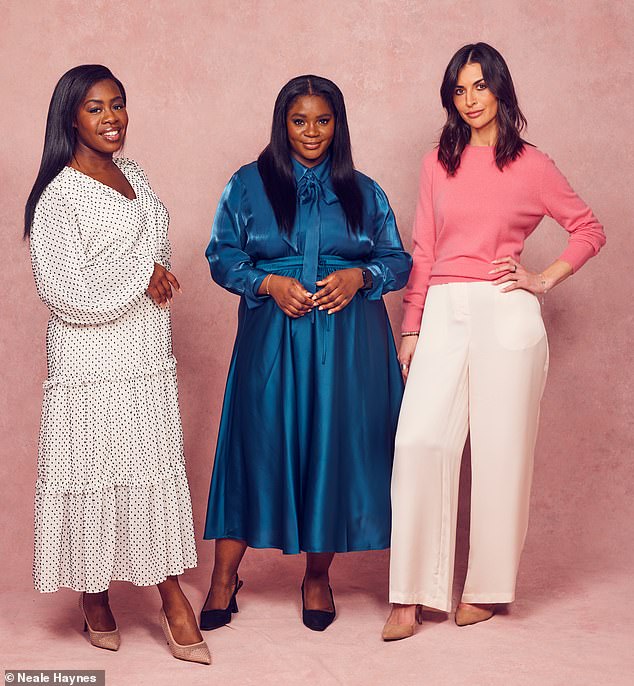
Carla (R) launched The Endometriosis Foundation last March, with one over-arching goal: to provide women and girls with everything she needed but was never given
Adds Carla: ‘Fundraising is under way with a view to providing free counselling, something women can wait years for on the NHS. I know the profound impact endometriosis can have, both physically and mentally; access to counselling when you’re trying to come to terms with that is vital.’
Carla is thrilled to be named one of our Inspirational Women.
‘We don’t celebrate our wins enough. Having met the other winners, I feel deeply grateful that our very personal causes are being celebrated on such a great scale.’
Of meeting Her Majesty, she adds: ‘It was a privilege to meet Camilla. Until then I hadn’t realised just what a champion for women the Queen is. She was incredibly passionate about the empowerment of women all over the world and talked about how what I was doing helps achieve that. It was a profound experience.’
- theendometriosis foundation.org
MOTHERS FIGHTING FOR BLACK WOMEN
Tinuke Awe and Clotilde Abe, Five X More
Tinuke Awe has a powerful message for maternal health providers across Britain. ‘Start listening to black women,’ she says. ‘Because if you fix the problems we face during pregnancy and childbirth, then you will fix things for all women.’
Tinuke, 32, has been fighting for black women to be heard by maternity services since 2019, when she joined forces with Clotilde Abe, a mental health campaigner with a background in maternity care.
They were appalled by statistics that said black women in the UK were five times more likely to die during pregnancy and childbirth than white women.
‘Hence the name of our organisation, Five X More,’ says Tinuke.
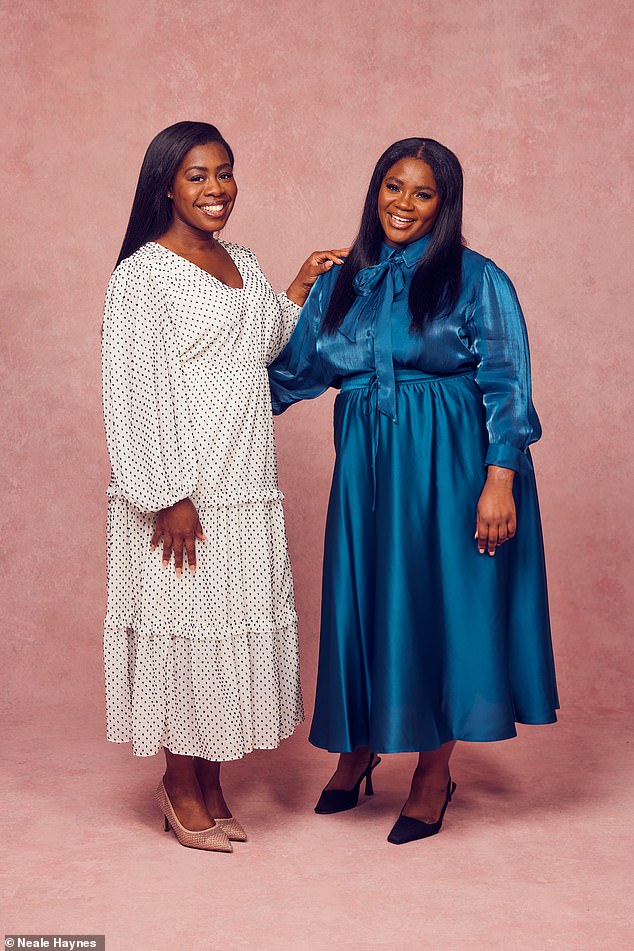
Clotilde Abe and Tinuke Awe started Five X More and are fighting for black women to be heard by maternity services
Today, that number has reduced to being four times more likely. ‘We really hope our work has played a part in that,’ she adds.
It may well have done. In 2020, their petition calling on the government to improve black maternal health outcomes gained more than 187,000 signatures, leading to a debate on the matter in parliament for the first time.
Today, their focus is largely on empowering black women to make informed choices and advocate for themselves throughout pregnancy and during childbirth.
‘This was born out of my own very poor experience of pregnancy and childbirth, as a black woman,’ explains Tinuke. ‘I put that down to not being listened to.
‘I was told all through my pregnancy that I had protein in my urine, which can be a sign of pre-eclampsia. Yet nothing was ever done about that until the very end when I was rushed into hospital with dangerously high blood pressure and then induced.
‘It was a terrifying experience, made worse by the fact that no-one believed me when I said I was in agonising pain soon after the induction started. They refused to believe I could already be in labour.
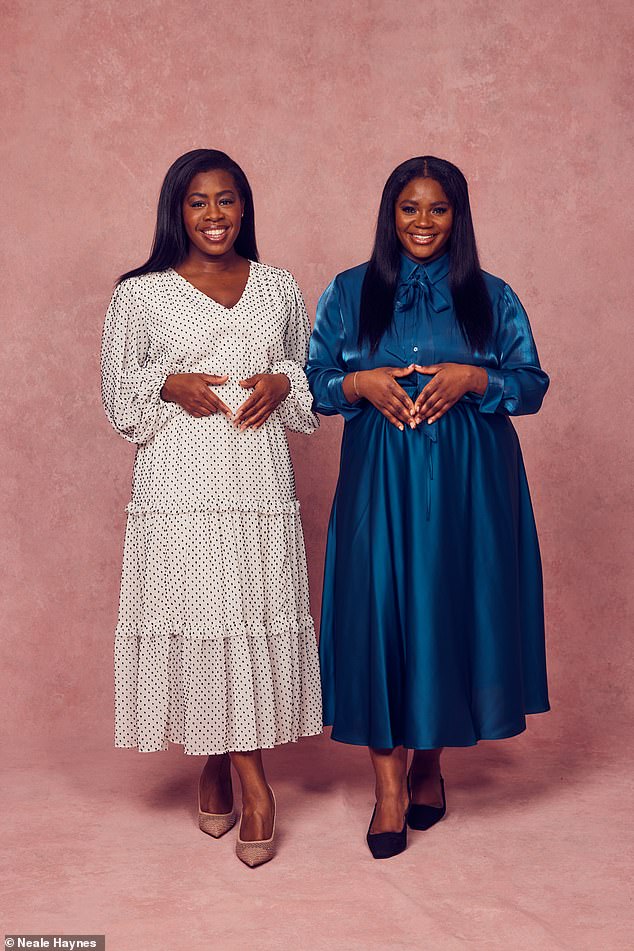
The pair were appalled to hear that black women are five times more likely to die in pregnancy and childbirth than white women and wanted to do something about it
‘They left me for hours, without pain relief. When I was finally examined I was almost fully dilated and it was too late for me to be given anything to help with the pain. By then, I was so exhausted I needed an assisted birth. I left the hospital grateful my son was OK, and just glad the experience was behind me.’
It was only when Tinuke began speaking to other black mums about their birth experiences, and discovered they all had similarly distressing stories, that she realised the colour of their skin might play a part. She began to investigate, teaming up with Clotilde to see what changes they could bring about.
Clotilde, 34, says: ‘We know the UK has one of the lowest maternal mortality rates globally, but there is a clear disparity in who is dying and suffering from the worst outcomes and that is what we are working to change. This is not a good place for black women to give birth.’
Five X More provides factsheets that spell out birthing rights, and informs on the health issues that can lead to bad maternal outcomes for black women in the first place. ‘We arrange hypnobirthing and counselling for black pregnant women, as well as lobbying Parliament and those in power,’ says Tinuke. The duo, who live in London, also train maternal health professionals.
Both women are thrilled that their work is being celebrated. ‘This proves to us that the work we’re doing really is helping create change,’ says Clotilde.
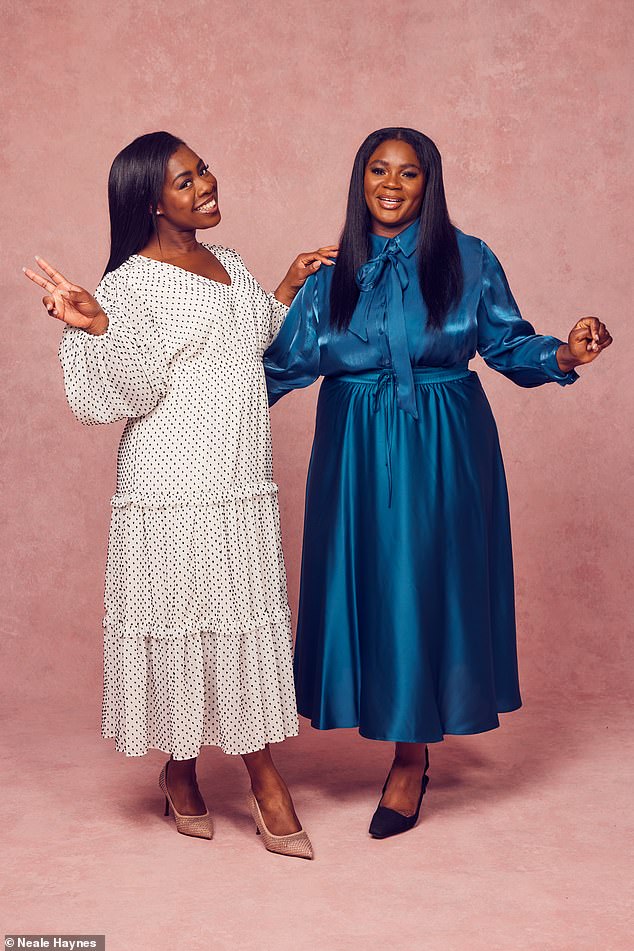
Five X More provides factsheets that spell out birthing rights, and informs on the health issues that can lead to bad maternal outcomes for black women in the first place
Tinuke adds: ‘It means the world to us — we run the organisation on our own, around working and each raising two small children.
‘Sometimes, you can’t help but wonder, does anyone notice or even care what we’re doing here? But then a moment like this comes along, and we realise we truly are making a difference.
‘It felt great to be recognised by the Queen. She pointed out that we were chosen out of hundreds of nominations and that we deserved to be honoured because of the great effort we put into helping others.’
PROTECTING OUR VETERANS
Claire Lilly, The Forcer Protocol
Claire says she is honoured to be named one of our Inspirational Women. Sadly, though, the life-saving work she does — helping trace veterans at high risk of suicide who go missing — was born out of great loss to her family.
Claire’s ex-husband, Alan, went missing in May 2020. At the time, she struggled to convince the 11 different police officers she spoke to just how vulnerable he was.
A former lance corporal in the Coldstream Guards, Alan suffered from complex post-traumatic stress disorder and previously attempted to take his own life.
‘Time was of the essence,’ says Claire, 47, a holistic therapist who lives in Essex. ‘I told police he was at risk of suicide, that he suffered from paranoia and was drug and alcohol dependent. But the message got diluted.’
Tragically, three days later police found 40-year-old Alan’s body in woodland near his home in Stockton-on-Tees.
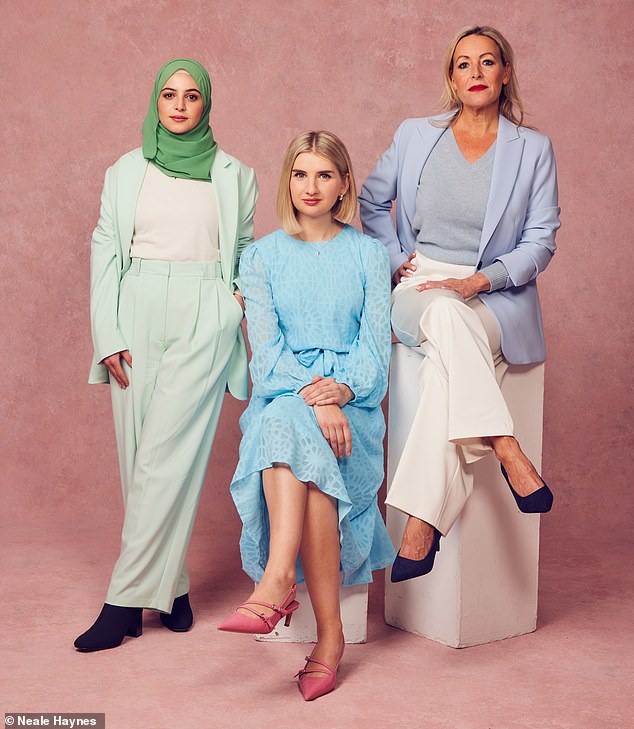
Claire Lilly (R) started The Forcer Protocol after her ex-husband Alan, went missing in May 2020 and was found dead in a forest
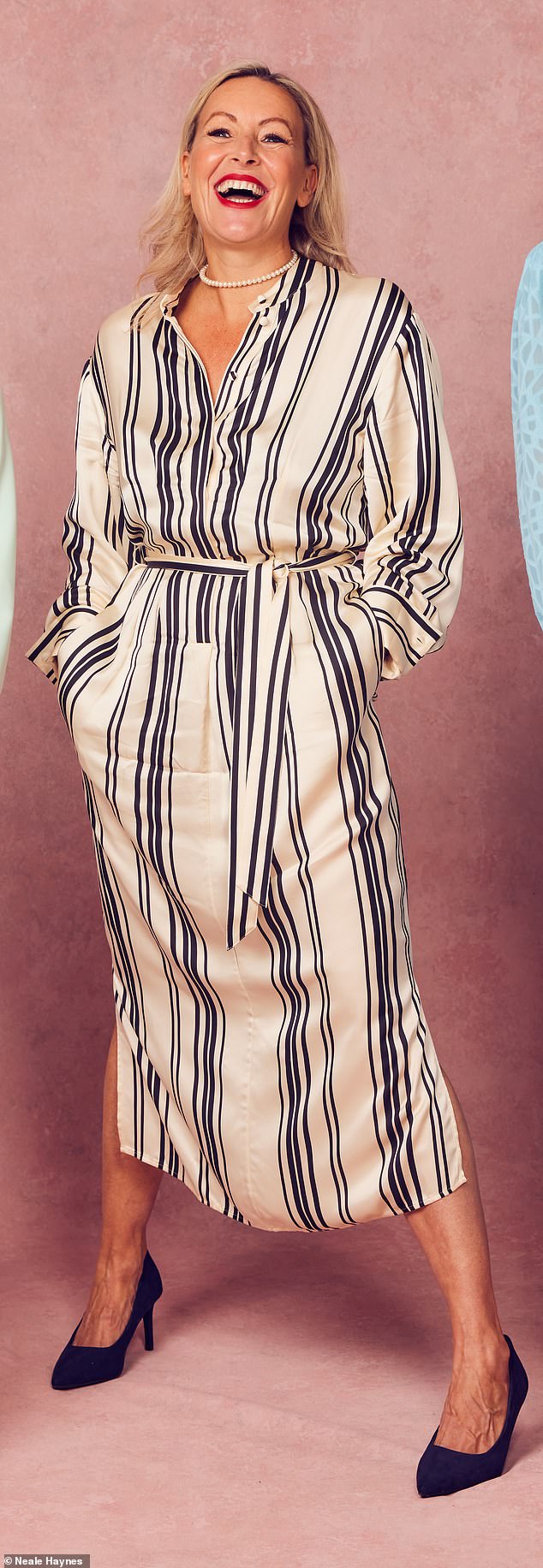
Claire persuaded Greater Manchester Police to implement The Forcer Protocol, named in honour of her husband
After discovering that one veteran a week takes his own life in Britain, Claire set about changing things. The coroner’s report highlighted flaws in how police had handled Alan’s case and recommended they work with Claire to try to avoid similar tragedies.
With the backing of her local MP, Mark Francois, and Minister of State for Veterans’ Affairs, Johnny Mercer, Claire persuaded Greater Manchester Police to implement The Forcer Protocol, named in honour of her husband. The strategy aims to quickly locate veterans at risk of self-harm, then ensure they receive the help they need.
Introduced as a pilot scheme in November 2023, it has already successfully traced 79 veterans, potentially saving their lives, and will be rolled out through other police forces next month.
‘That increases by up to five each week,’ says Claire. ‘Every call handler in Manchester now automatically asks if a missing person is a veteran. If they are, police can immediately access an online site that stores potentially life-saving information such as their GP, medication they’re on and any previous suicide attempts.
‘It saves precious time and helps police properly assess risk. When we go national next month even more lives will be saved. I do it all in memory of Alan.’
- safeandfoundonline.co.uk/ forcer-protocol
GIVING GIRLS AN EDUCATION
Muzoon Almellehan, UNICEF Goodwill Ambassador
From the moment she arrived in a refugee camp aged 14, Muzoon Almellehan has fought for the rights of children — particularly girls — to have an education.
‘Education isn’t a privilege, it’s a right,’ says Muzoon, whose life was turned upside down at 11, when war broke out in Syria in March 2011. She fled with her family to Jordan; home became a tent in Zaatari, one of the world’s largest refugee camps. A month later, UNICEF supported the opening of the camp’s first school.
Studying helped Muzoon focus on her future. But she discovered some girls, even as young as 13, were being married to men in the camp instead of going to school, because their families thought marriage would protect them.
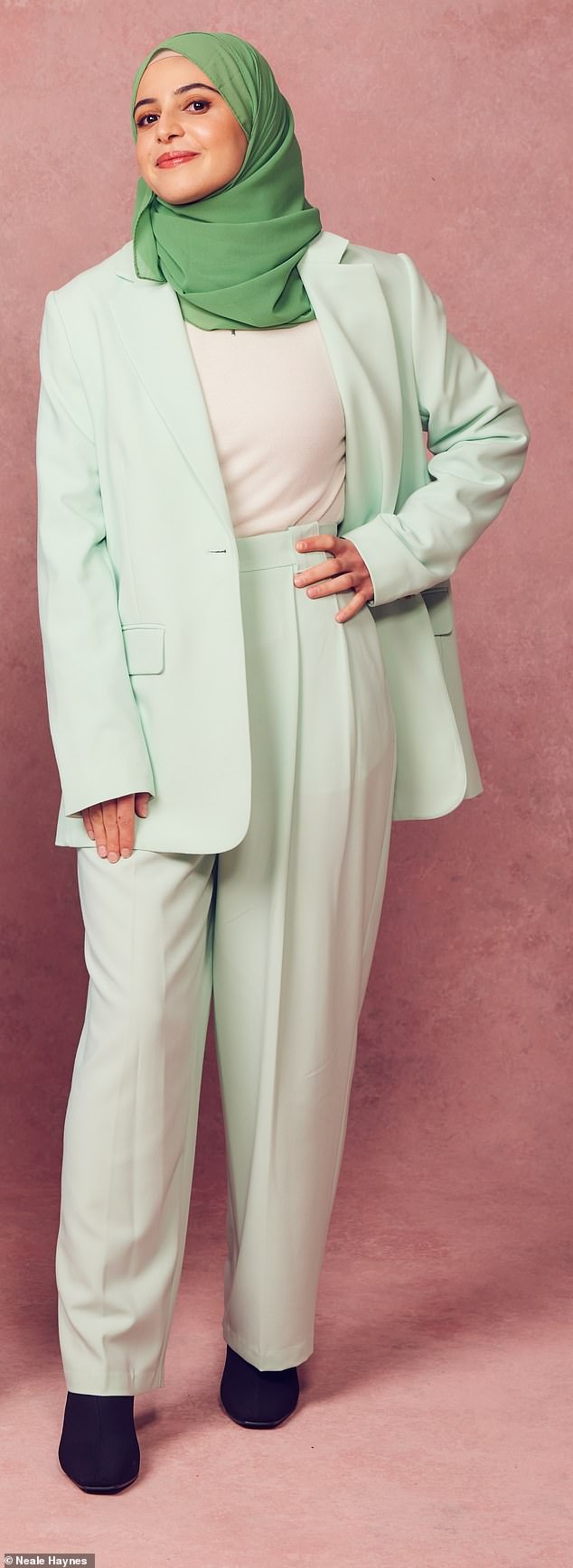
Muzoon Almellehan arrived in a refugee camp age 14 and since then, she’s fought for the rights of children — particularly girls — to have an education
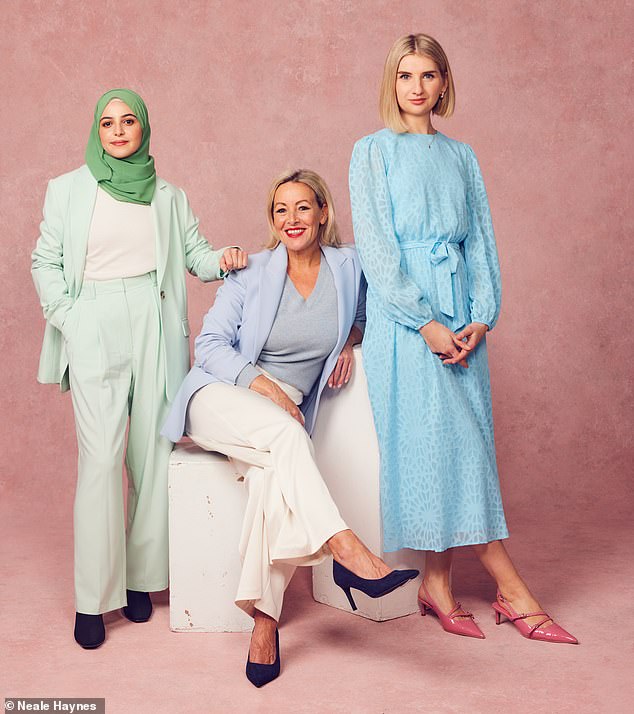
Now, aged 25 and with a master’s degree in international relations, Muzoon (L) works full-time for her local council in Newcastle helping asylum seekers and migrants
Every day, she toured the camp, talking to parents about sending their children to school, encouraging the girls to attend. ‘I told them there is no better protection than education,’ she says.
In 2015, Muzoon arrived with her family in Britain, having been given refugee status. Now, aged 25 and with a master’s degree in international relations, Muzoon works full-time for her local council in Newcastle helping asylum seekers and migrants, as well as travelling the world as a UNICEF ambassador since 2017, campaigning for children’s rights.
She visits refugee camps where she hopes to instil the same passion for education in others. ‘I was in their place; I tell them that life will get better,’ she says.
Muzoon says being named a Daily Mail Inspirational Women makes her feel grateful and proud. ‘It motivates me to raise my voice even louder, as I want to help make an impact and resolve the education challenges faced by so many children worldwide.
‘I want to continue to highlight the importance of helping children living in emergencies; they need our support now more than ever.’
HELP FOR PRISONERS THAT HELPS SOCIETY
Lucy Vincent, Food Behind Bars
When you think of a prisoner’s day-to-day existence, concern over the quality of their meals might not be at the forefront of your mind. Which makes what former fashion journalist Lucy Vincent now does — working with staff and inmates to promote healthy eating through classes and workshops — all the more important.
Lucy’s mission doesn’t just make life better for people behind bars. It also benefits society as a whole. Major studies have found that tastier, nutritious food can significantly reduce the risk of reoffending on release.
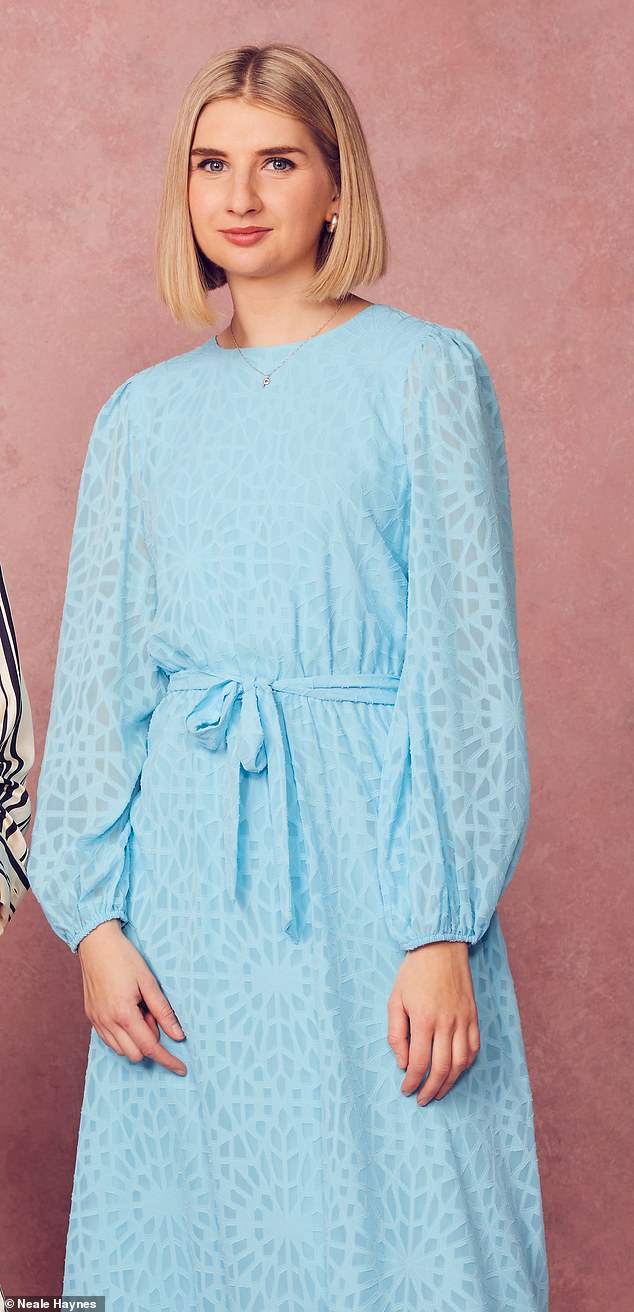
Former fashion journalist Lucy Vincent works with staff and inmates to promote healthy eating through classes and workshops
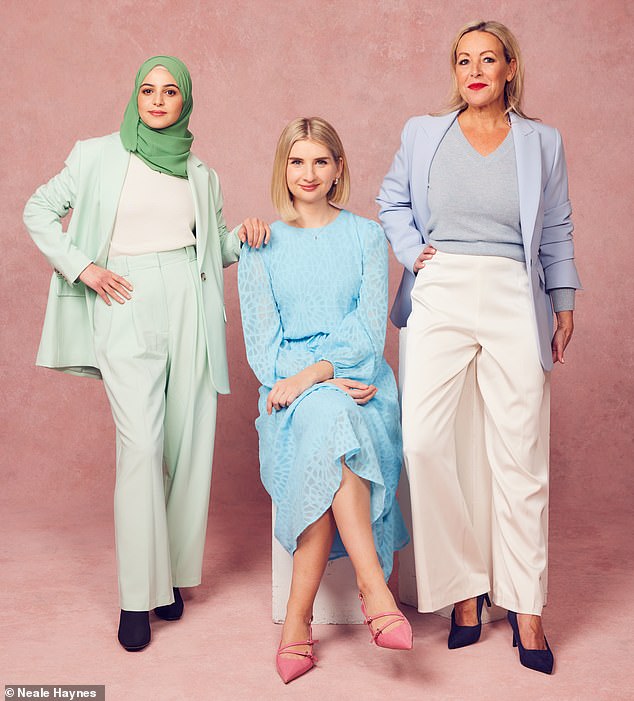
Determined to help improve conditions, Lucy (C) launched Food Behind Bars in 2016, with the group becoming a charity in 2020
Denmark, which spends £8 per head a day on prisoners’ food, compared with £2.70 in the UK, has one of the lowest reoffending rates in Europe, at 29 per cent. In Britain, where 48 per cent of prisoners re-offend within 12 months, it costs the taxpayer £15 billion a year.
Back in 2016, Lucy, then 24, read a government report about the dire quality of prison meals, often eaten by prisoners alone in their cells, sitting next to the toilet.
She began speaking with prison governors across the country, becoming particularly moved by the plight of female offenders, most likely to be in prison because of shoplifting or other non-violent crimes. Although women make up only four per cent of the prison population, they account for 29 per cent of self-harm incidents.
‘They’re vulnerable, likely to have been living in care and many are victims of sexual abuse and domestic violence,’ says Lucy, now 31, who lives in Essex.
Determined to help improve their plight, she launched Food Behind Bars in 2016, with the group becoming a charity in 2020. It now helps chefs design healthy, cost-efficient menus.
‘Women offenders are often mothers and missing their kids — if they’re single parents things are even harder. Good food can go a long way to help improve self-esteem, and I’m so happy that this award means I can get this message to many more people.’
Of her visit to Buckingham Palace, she adds: ‘Supporting the wellbeing of offenders can be unpopular. Yet Camilla was very supportive of our work. She spoke with genuine interest and understanding, and said what we’re doing is really important. It was a proud day.’

